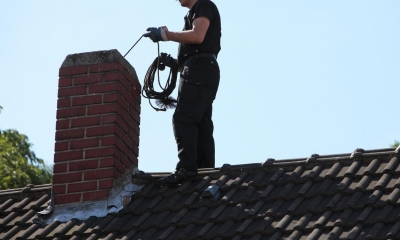
As an ophthalmic or dispensing optician, you are bound in all major aspects of your work (testing sight, prescribing, fitting spectacles and contact lenses and so on) by the provisions of the Opticians Act and Orders, Rules and Regulations made under it. The Act requires you, as a practising optician, to register with the General Optical Council (GOC), the professional lead body with statutory powers to regulate the industry.
All registered members of the GOC must abide by the Council's statutory Rules. These cover a wide range of both business and clinical matters, including continuing education and training (CET), the supervision of trainees, the fitting of contact lenses and the way in which an optician's business is permitted to advertise and promote its services.
It is essential that you familiarise yourself with the key provisions of the Opticians Act and the requirements of the GOC Rules at an early stage in your business planning.
Note too that all of the main professional bodies for opticians have standards and guidelines for professional conduct that they expect their members to follow.
What licences does an optician need?
Opticians' registration
As a practising optician (sight testing and/or dispensing) in the UK, you are required under the Opticians Act to register with the General Optical Council (GOC). It is necessary to hold an appropriate qualification from an approved institution and meet the other registration requirements in order to register with the GOC. Requirements for ongoing registration include undertaking sufficient continuing education and training (CET), and meeting the necessary professional standards. For further information contact the GOC - full contact details are available on their website.
To carry out NHS work you will need to be registered on the commissioning body's ophthalmic performers list. Getting registered involves either providing a recent enhanced Disclosure and Barring Service (DBS) background check or giving your consent for a check to be done.
If your work includes on-site spectacle glazing (cutting and fitting finished lenses into frames), receiving remotely edged new lenses and fitting them into new frames, or surfacing work, then you will have to register with the Medicines and Healthcare products Regulatory Agency (MHRA) as an assembler of medical devices. There is a small one-off fee for registering. More information about medical devices is available on the Gov.uk website. Guidance for opticians is available on the Association of Opticians (AOP) website. Note that activities such as re-glazing existing frames, repairing broken spectacles and making final fitting adjustments to finished appliances do not give rise to any registration requirement.
Orthoptists' registration
Orthoptists - specialists in eye alignment and eye movement disorders - need to register with the Health and Care Professions Council (HCPC). They must hold an approved qualification and meet certain standards in order to register. Your optical practice might employ a specialist orthoptist. For further information contact the HCPC or check the HCPC website.
Data protection
As you will be keeping comprehensive records of your patients' prescription and personal details - almost certainly computerised - you will need to register as a data user with the Information Commissioner's Office (ICO), for which there is a fee.
Selling general insurance
If your optical practice sells, advises on, arranges or assists in selling general insurance (for example spectacle or eye care insurance) then you may need to be regulated by the Financial Conduct Authority (FCA) - even if insurance is only a small part of your business. If this applies to your business you can either become directly authorised by the FCA or act as an 'appointed representative' of an authorised principal. Contact the FCA for further information.
Retailing and fair trading
There is a wide range of legislation that applies to retail outlets to protect the interests of the consumer. For example, goods and services must not be misleadingly described and the retail price of goods must be clearly displayed. You will be responsible for making sure that all goods or services are fit for their intended purpose and of satisfactory quality.
Customers must be treated honestly and fairly at all times, and certain dishonest practices like faking credentials and using scare tactics are specifically outlawed by consumer protection regulations.
You can read more about consumer protection and fair trading legislation on the Gov.uk and Trading Standards Business Companion websites.
Child protection
It is not currently a legal requirement for staff in opticians practices (including opticians themselves) to have a background check by the Disclosure and Barring Service (DBS), but it is good practice to do so if they come into regular contact with children and/or vulnerable adults. Moreover, NHS commissioning bodies require clinicians like opticians to undergo these checks before they will accept them as new applicants onto their NHS performers lists and contract with them for the provision of NHS services. Trainee opticians are in any case required to undergo an 'enhanced' check when they start their training.
Note that as an employer you are required by law to notify the DBS if you have reason to believe that a person working in your practice may cause harm to a child or vulnerable adult. And it goes without saying that you must never employ someone in a position where they will be working with vulnerable people if you're aware that they have been barred from doing so by the DBS.
You can find out more about background checks and DBS information referrals on the DBS section of the Gov.uk website.
Substances that could be used to make explosives
There are special regulations in place to prevent substances that could potentially be used to make explosives getting into the wrong hands. Some substances, which would normally only be available from specialist suppliers, are regulated and can only be supplied to a member of the public who has a licence to obtain and possess them. Other substances, although not regulated, are nevertheless of potential concern. An example of these substances, which are referred to as 'reportable substances', is hydrogen peroxide in weak solutions such as found in many contact lens sterilising products (strong solutions of hydrogen peroxide are regulated).
You must report any suspicious transactions (or disappearances due to theft) involving regulated or reportable substances to the police Anti-terrorist Hotline on 0800 789 321. A transaction could be suspicious for various reasons, for example because the customer insists on paying cash and/or wants an unusually large quantity of a product containing a reportable substance.
There's more information for businesses about regulated and reportable substances on the Gov.uk website.
Carrier bag charge
A minimum 10p charge applies for single-use carrier bags in England (other rules apply in Wales, Scotland and Northern Ireland). You can get detailed guidance from the GOV.UK website.
Health & Safety, fire
You must comply with workplace health and safety and fire safety legislation.
Employment legislation
Anyone employing staff must comply with employment legislation. Important areas of legislation include recruitment, employment contracts, pay, working hours, holidays, employment policies, sickness, maternity, paternity, discrimination, discipline, grievances, dismissals, redundancies and employment tribunals.
Other relevant legislation
- the Access to Health Records Act (and the equivalent legislation for Northern Ireland) and the Data Protection Act, cover the keeping of records about individual clients/patients, who have the right of access to health records relating to them (other similar legislation applies to medical reports)
- the Sight Testing (Examination and Prescription) Regulations, which specify how sight tests must be carried out and require you to give a written prescription - or written confirmation that no prescription is needed - to every patient after a sight test
- NHS (General Ophthalmic Services) Amendment Regulations, which require you to inform a patient's doctor if he or she is examined and found to be suffering from diabetes or glaucoma
- the Medicines Act, which regulates the supply and use of certain ophthalmic drugs (additional legislation covers opticians' prescribing)
- the Medical Devices Regulations, which regulate spectacles, contact lenses and other ophthalmic appliances
Other regulations and orders deal with the administrative aspects of contracting to the NHS and cover matters like record keeping and other procedures.
Insurance for an optician
Contact an insurer or insurance broker and explain exactly how your business will operate - they will then explain what insurance cover you must have by law, and other cover you should consider. This might include:
- employer's liability
- public liability
- product liability
- professional indemnity and medical malpractice/negligence
- premises, premises contents
- motor insurance (for business vehicles)
- loss of earnings and locum cover
Medical malpractice insurance should cover the full range of activities that you undertake in your practice. Make sure that it covers both yourself as an individual practitioner and the practice as a whole. If locums and other freelances work on the premises, be clear about what the insurance position is.



